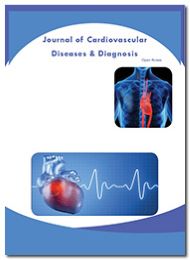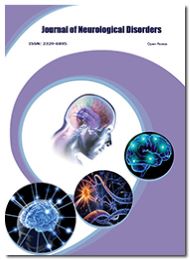Conference Series extends our immense pleasure and honored to invite you to attend the “Webinar On Congestive Heart Failure” scheduled on April 27, 2021 in London, UK. It is focusing on the theme “Stimulating Excellence In Cardiology and Healthcare " to enhance and explore knowledge among academics and industry personnel dealing with Cardiovascular Disease, Heart Failure, Chest Pain, (angina) or Stroke and its related subjects. Our conference agenda is to provide the right stage to present stimulating Keynote talks, Plenary Sessions, Discussion Panels, B2B Meetings, Poster Symposia, Young Researcher’s Forum, Video Presentations, and Workshops.
Why to attend?
Leading Scientists, Researches, and Professionals from all across the world gathering at Webinar On Congestive Heart Failure which is going to be held on April 27,2021 London,UK where the organizing committee is gearing up for an exciting and informative cardiology and Neurology conference program including plenary lectures, symposia, workshops on a variety of topics, poster presentations and various programs.
Who attends?
Cardiologists
Anesthesiologists
Cardiology Physicians
Thoracic and Cardiothoracic Surgeons
Pulmonologist
Medical Directors
NeuroSurgeon
Cardiac Nurses & Nurse Practitioners
Cardiology Associations and Societies
Business Professionals
Medical colleges and universities
Manufacturing Medical Devices and Companies
Healthcare Professionals
Integrated Health promoters
Fitness Professionals
Cardiovascular Researchers & Scientists
Pediatric Cardiologists
Electro Physiologists
Business Entrepreneurs
Cardiology Faculties and Professors
Medical Students and Ph.D. Fellows
Clinical Research Scientists
Interventional Cardiology and Endovascular Interventions:
Interventional Cardiology:
Interventional Cardiology can be defined as an area of medicine within the subspecialty of cardiology that uses specialized imaging and other diagnostic techniques to evaluate blood flow and pressure in the coronary arteries and chambers of the heart, as well as technical procedures and medications to treat abnormalities that impair the function of the Cardiovascular System. It deals specifically with the catheter-based treatment of Heart Diseases.
Endovascular Interventions:
Endovascular Surgery is an innovative, less invasive procedure used to treat problems affecting the blood vessels, such as an aneurysm, which is a swelling or "ballooning" of the blood vessel. The surgery involves making a small incision near each hip to access the blood vessels. An endovascular graft, which is a special fabric tube device framed with stainless steel self-expanding stents, is inserted through the arteries in a catheter, a long, narrow flexible tube, and positioned inside the aorta
Pediatric Cardiology:
Pediatric Cardiology deals with diseases of the heart in the growing and developing individual. As well as expertise in Heart Disease, Pediatric Cardiologists also need thorough training in general pediatrics, in order to provide all-round patient care. The initial valuation performed by the Pediatric Cardiologist might start with a physical examination using a stethoscope, after which more detailed investigations may be suggested.
Structural Heart Disease:
Structural Heart Disease also, known as the problem with the tissues or valves of the heart and most of the structural heart diseases are genetic, which means present at birth. Some structural heart disease will develop later in life. There are many kinds of structural heart diseases, but they all involve a defect or disorder in the structure of the heart tissue or valves. Heart conditions that fall in the category of structural heart disease include, Aortic valve stenosis, Atrial Septal defect and Patent foramen ovale, Heart Valve Disease, Mitral valve regurgitation, Left ventricular hypertrophy, Cardiomyopathy, Marfan syndrome and Myocarditis etc.
Preventive Cardiology:
Preventive Cardiology is the knowledge related to the prevention of Cardiovascular Disease, either its manifestation or its progression with the aim to avert life-threatening cardiovascular events and to reduce cardiac mortality. Preventive cardiology also calls for a different approach to our patients: it aims to influence the underlying systemic disease process of atherosclerosis, of which the acute events are just short manifestations. It focuses on the improvement of long term outcome rather than acute symptomatic relief and may have a greater impact on patient longevity than sophisticated interventions.
Clinical Cardiology:
Clinical Cardiology can be defined as the branch of medicine which deals with the diagnosis and treatment of Heart Diseases. Cardiologists frequently specialize in Interventional Cardiology, Cardiac Electrophysiology, Echocardiography, Or Nuclear Cardiology. Each of these specialties offers unique techniques when dealing with disorders of the heart.
Heart Failure:
Heart Failure inability of the heart to keep up with the demands on it and, specifically, failure of the heart to pump blood with normal efficiency. When this occurs, the heart is unable to provide adequate blood flow to other organs such as the brain, liver and kidneys. Heart Failure may be due to failure of the right or left or both ventricles. The signs and symptoms depend upon which side of the heart is failing. They can include shortness of breath (dyspnea), Asthma due to the heart (cardiac asthma), pooling of blood (stasis) in the general body (systemic) circulation or in the liver's (portal) circulation, swelling (edema), blueness or duskiness (cyanosis), and enlargement (hypertrophy) of the heart.
Women and Heart Disease:
The term Heart Disease refers to several types of heart conditions, including Coronary Artery Disease and Heart attack. Although heart disease is sometimes thought of as a man’s disease, almost as many women as men die each year of heart disease in the United States.
Despite increases in awareness over the past decades, only about half (56%) of women recognize that heart disease is their number 1 killer.
Learn more facts about women and Heart Disease:
Heart Disease is the leading cause of death for women in the United States, killing 299,578 women in 2017 or about 1 in every 5 female deaths.
Heart Disease is the leading cause of death for African American and white women in the United States. Among American Indian and Alaska Native women, heart disease and cancer cause roughly the same number of deaths each year. For Hispanic and Asian or Pacific Islander women, heart disease is second only to cancer as a cause of death.
About 1 in 16 women age 20 and older (6.2%) have coronary heart disease, the most common type of heart disease
-
About 1 in 16 white women (6.1%), black women (6.5%), and Hispanic women (6%)
-
About 1 in 30 Asian women (3.2%)
Market Analysis
Congestive Heart Failure market, it includes different types of diseases like cardiovascular and Neurovascular diseases, cardiac arrest, hypertension, coronary artery disorders, dyslipidemia and thrombotic events, it has been set to grow from $129.2 billion in 2015 to $146.4 billion by 2022.


